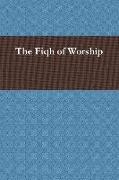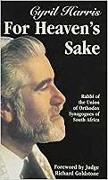The Fiqh of Worship
BücherAngebote / Angebote:
Fiqh is a subject that to some extent is being neglected these days with more concerted efforts taking place in the realm of aqidah (creed), and although it is undoubtedly pertinent that one learn what is permissible and not in relation to their beliefs, it is similarly important that the Muslims know what is permissible or otherwise in terms of their actions.The term fiqh is commonly translated as jurisprudence, yet the meaning of jurisprudence has been somewhat allusive to most people. Linguistically, the word fiqh means 'understanding' whereas the technical meaning applied to fiqh is that it is knowledge of the practical legal rulings derived from the detailed evidences. Of course, to many people such a classification will seem like technical legal jargon but it simply means that fiqh is knowledge of what is halal and haram in accordance with the Islamic sources of authority.The Hanbali school of legal thought was the last of the four major schools of thought to formulate its principles, and built upon the scholarship of Imam Ahmad ibn Hanbal it has survived and been practised for over a millennium. There were many periods in history when the Hanbalis numbered a handful, although today the school of thought seems to be making a resurgence. From amongst the long line of Hanbali scholars Muwaffaq-al-Din Abdullah ibn Ahmad ibn Muhammad ibn Qudama Al Maqdisi is amongst the most famous with his scholastic contributions making an impact on schools other than his own, not only in fiqh but also in aqidah. Having grown up in a religious family devoted to learning, he along with relatives would travel to Baghdad to seek knowledge already having benefitted from the scholars of Damascus (his own city) having moved there from Palestine. A contemporary of Salahuddin, he, along with his relatives took part in the great battle against the Crusaders which saw the end of their barbaric control of Jerusalem.
Folgt in ca. 5 Arbeitstagen


